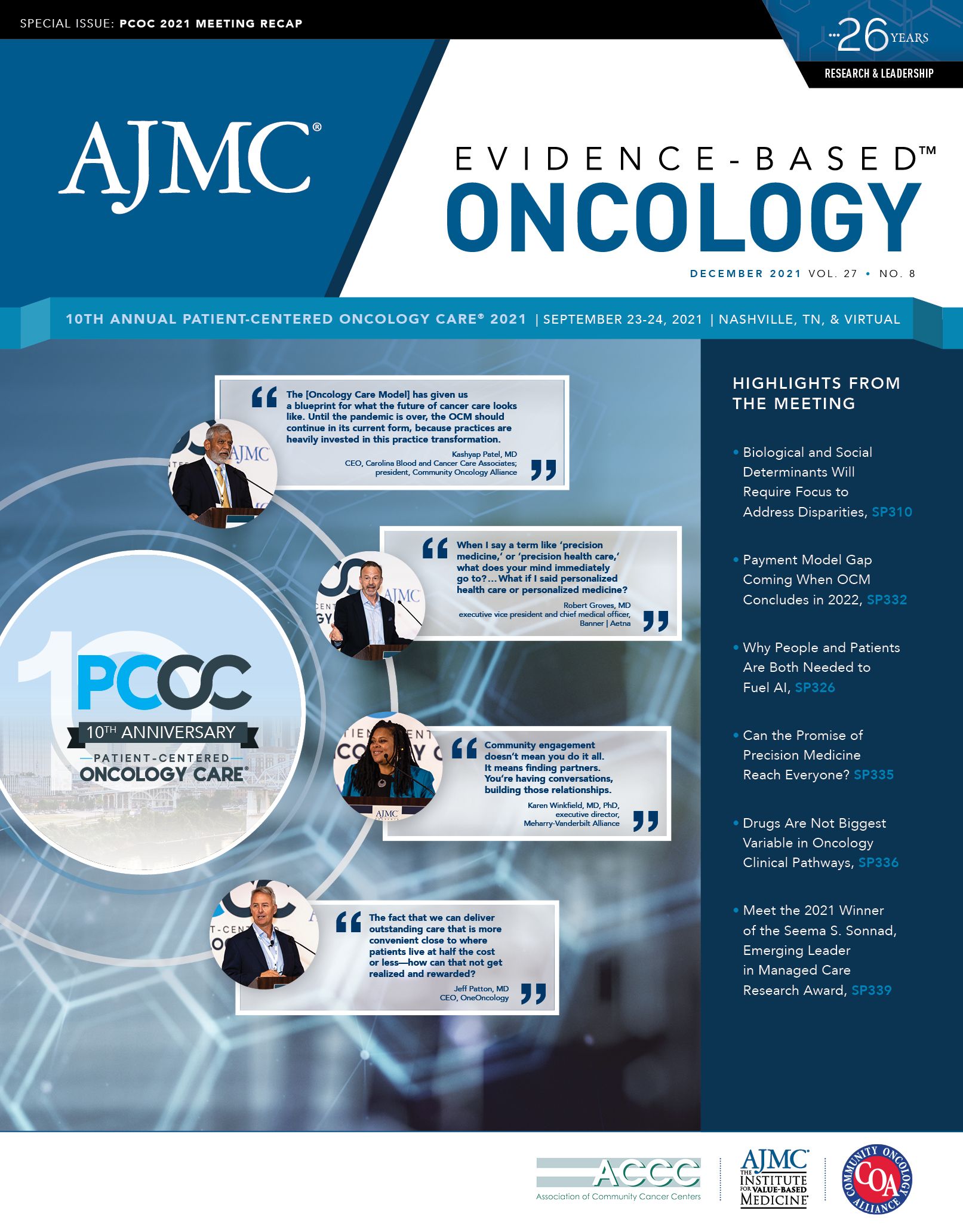- Center on Health Equity & Access
- Clinical
- Health Care Cost
- Health Care Delivery
- Insurance
- Policy
- Technology
- Value-Based Care
PCOC Spotlight: There’s Been a Lot of Good for Patients With the OCM, Says US Oncology’s Neubauer
Marcus Neubauer, MD, chief medical officer, The US Oncology Network. He is an expert in precision medicine, value-based care, and clinical pathways.
The Oncology Care Model (OCM) was a great program that led to practice transformation and improved patient care, but a way to address the high cost of cancer therapies is necessary, said Marcus Neubauer, MD, chief medical officer of The US Oncology Network.
What are you hoping comes after the OCM? What lessons from OCM should be in the successor model?
NEUBAUER: First of all, it remains to be seen if a successor will emerge. I hope one will. I think that the OCM has been very good for patients [and] good for changing the way that oncology is delivered. Something about the OCM—something that’s not talked about as much as cost savings and bending the cost curve—is the change in the way care is delivered. It really drove a lot of good things. I think patients were getting more attention, more coordination of care; we had more efforts to keep people out of the hospital and the emergency department; and we saw better evaluation of data to learn from the program. So, a lot of good [came out of] the OCM; I thought it was actually a great program and did a lot of good things for practices and, again, for patients.
But it’s over, you know, [as of early 2022]. It would be great if Medicare,
[the Center for Medicare and Medicaid Innovation], looked at another model—one that continues to drive value—and also at ways to reimburse [and] pay for cancer care in an appropriate way. [This care is] very, very expensive. A lot of utiliation [happens] that’s not always needed. And I still see value in trying to explore better ways to pay for what is very expensive care.
Was there something missing from OCM that you would like to see in a successor model?
NEUBAUER: In a subsequent model, I would continue to support the more comprehensive staff and infrastructure at practices. That is expensive, and it’s typically not reimbursed. To find a way to support that would be very important. Otherwise, a risk would arise that community practices really couldn’t afford the nutritionists and social workers. So, I think that’s something I would definitely try to keep going in the next model. I believe the focus on drugs needs to continue, as well. When you look at the baseline data for the OCM, the data that were calculated prior to the program beginning—2012 to 2015—they show that drugs took up about 40% of the overall cost per episode. That is now at about 70%. This isn’t necessarily a bad thing, because drug therapy has seen many advances, but it’s very, very, very expensive and that will be the focus whether you know participants like it or not.

Exploring Racial, Ethnic Disparities in Cancer Care Prior Authorization Decisions
October 24th 2024On this episode of Managed Care Cast, we're talking with the author of a study published in the October 2024 issue of The American Journal of Managed Care® that explored prior authorization decisions in cancer care by race and ethnicity for commercially insured patients.
Listen
